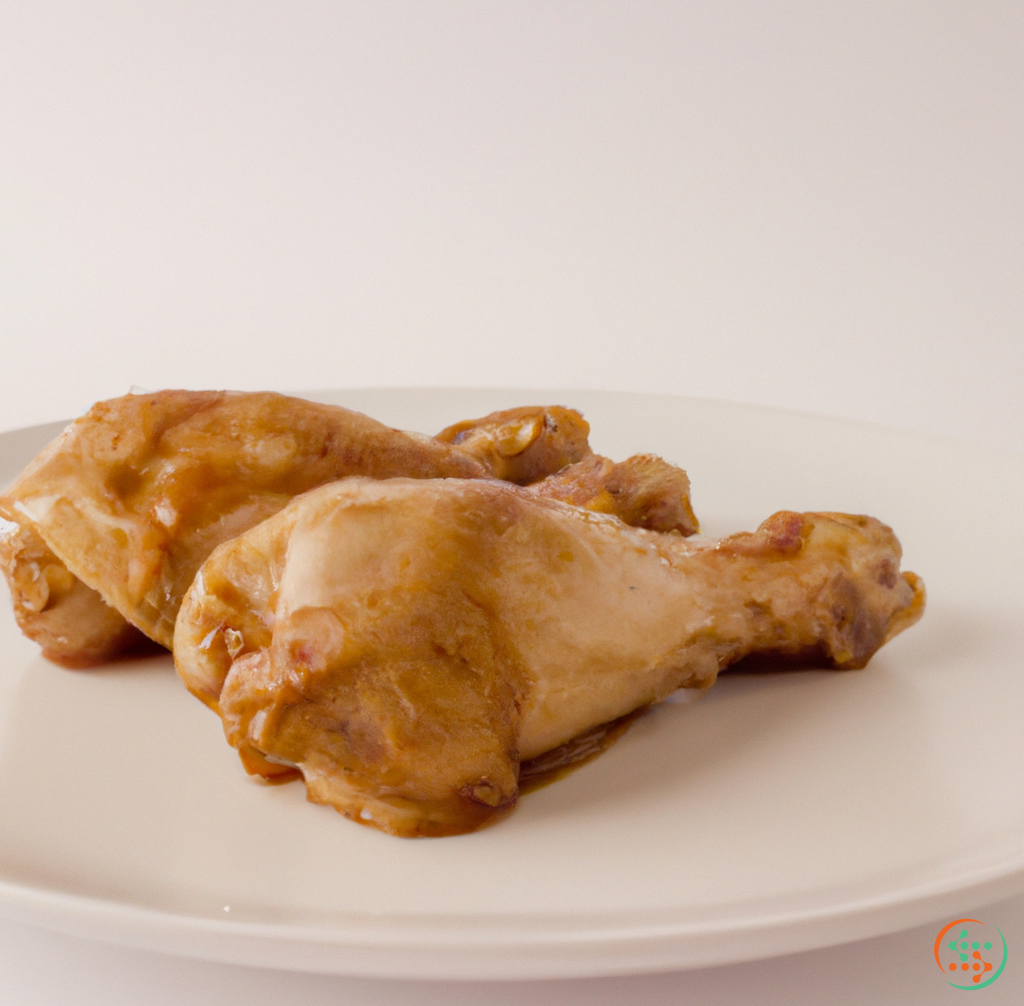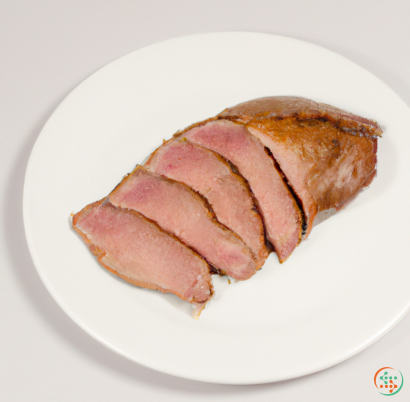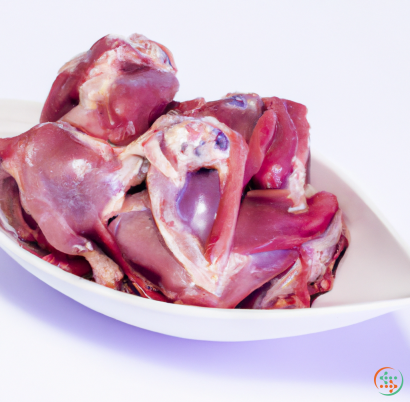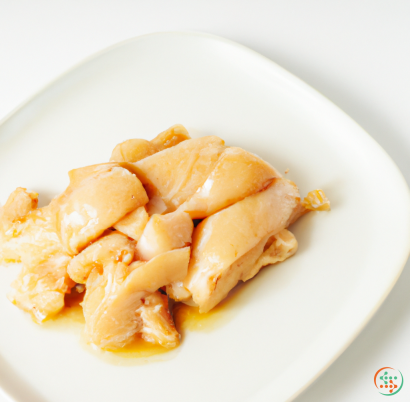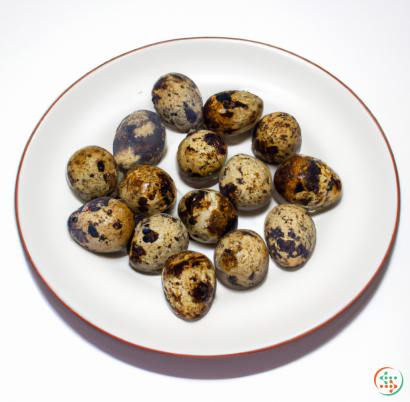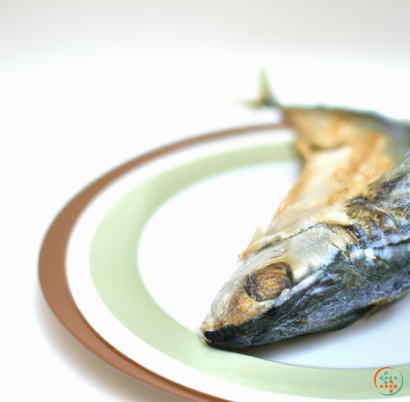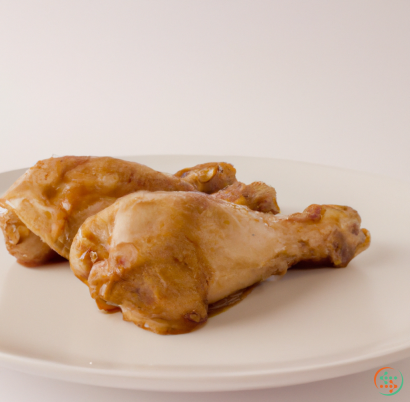Chicken Thighs: Complete Vitamin Profile
Chicken Thighs: Considered a good source of vitamins?
Yes, chicken thighs are a good source of vitamins. Chicken thighs contain high amounts of various B vitamins like niacin, vitamin B6 and thiamine, as well as minerals including iron, selenium, phosphorus, magnesium and potassium. They’re also packed with protein to support muscle growth and repair. The fat content in chicken thighs is a healthy mix between polyunsaturated and monounsaturated fats, which will help reduce inflammation while supplying your body with energy. Additionally, they provide important nutrients such as riboflavin, zinc, copper, and other micronutrients that play an important role in keeping your immune system strong.
Chicken Thighs ‐ Vitamin Information
Introduction
Chicken is a popular dietary staple all over the world. It is high in protein, contains minimal fat and cholesterol, and can be made into a variety of dishes for breakfast, lunch, and dinner. Chicken thighs are particularly attractive due to their higher content of essential vitamins compared to other parts of the chicken. In particular, those vitamins found in chicken thighs can offer numerous health benefits including improved bone strength, increased immunity, and better cardiovascular functioning. Therefore, it is important to investigate just what kind of vitamins are present in chicken thighs and how they affect overall health.
Nutritional Profile of Chicken Thighs
The average nutritional profile of raw chicken thigh meat provides approximately 183 calories per 85-gram serving (3), as well as 17 grams of protein and 8.8 grams of fat, of which 2.6 grams is saturated fat. These macronutrients represent roughly 44 percent, 37 percent, and 12 percent of the recommended daily values, respectively. Additionally, various micronutrients can also be found in plentiful amounts in chicken thighs, especially when comparing it to other poultry products. Specifically, among these micronutrients, nine key vitamins are present in considerable amounts within chicken thighs, including thiamine (B1), riboflavin (B2), niacin (B3), pantothenic acid (B5), pyridoxine (B6), biotin (B7), folate (B9), vitamin B12, and vitamin A. Because each one contributes heavily towards maintaining one’s overall wellbeing, the next section will further explore each one individually.
Thiamine (B1)
thiamine has multiple roles throughout the body, from its involvement with metabolic processes such as glucose stimulation, to building red blood cells and nerve tissue. Each 85-gram serving of cooked chicken thighs contain 0.08 mg of thiamine representing 6 percent of the Recommended Daily Intake (RDI). Regular consumption of this nutrient can help reduce risks against anemia and other related conditions, while simultaneously boosting nervous system function, and promoting sharp brain power.
Riboflavin (B2)
Riboflavin plays several critical roles within the health including regulation energy levels and metabolism, enhancement of eye health, cell growth production assistance, prevention of headaches, migraines, and more. An 85-gram portion of cooked chicken thigh provides 0.27 milligrams or 17 percent of the RDI for riboflavin, making it a suitable source for obtaining sufficient amounts of this essential vitamin.
Niacin (B3)
Similar to thiamine, niacin works like caffeine and helps activate different enzymes that convert food into usable energy for the body. Eating chicken thigh meat, meanwhile, can supply 4.79 mg of niacin per 85 grams - equivalent to 39 percent of your daily niacin needs. Niacin deficiency, on the other hand, may cause pellagra symptoms like dementia, diarrhea, dermatitis, abdominal pain, and vomiting.
Pantothenic Acid (B5)
Notably, pantothenic acid is useful for supplying the necessary nutrients responsible for producing both steroidal hormones, neurotransmitters, as well as serving utmost importance in respiration, digestion, energy synthesis and maintenance. 100 grams of baked, skinless chicken thigh meat provide 1.1 milligram or 18 percent of the RDI for pantothenic acid. This specific vitamin is known to support biochemical reactions related to antioxidant protection, counteracting inflammation, improving digestive health and sports performance, among others.
Pyridoxine (B6)
Used by the liver, kidneys and other organs in the body, Pyridoxine helps normalize glucose metabolism, enhances the immune system, and promote proper development of new neurological cells. Nearly 27 percent of the RDIs contained within a single 85-gram portions of chicken thigh is provided by pyridoxide, amounting to 0.41 mg. Furthermore, regular dietary intakes of Vitamin B6 aid in prevention of cancer, heart diseases, depression and even asthma attacks.
Biotin (B7)
Involved in creating various messenger molecules, biotin occurs naturally inside most meats and dairy products, but is still hardly consumed enough by humans. To get our required daily fill however, consuming about 59 grams of poultry items such as chicken thighs would give us 0.015 microgram worth of biotin, or 10 percent of the RDI. Deficiency of this vitamin can lead to hair loss, muscle pains, low appetite, severe weakness, brittle nails, gastrointestinal discomfort and potential hormonal imbalance.
Folate (B9)
Primarily used in controlling homocysteine levels, follates have long been known to influence cellular functions such as DNA replication and repair, red cell formation, healthy pregnancy, and neural tube developments. By eating 3 ounces (85 g) of cooked chicken thigh meat, we would meet around 3 nuclocids of the folate RDIs which accounts 10 percent of the daily requirements. Low intakes of this vitamin usually result in fatigue, graying of hair, poor growth rates and poor concentration.
Vitamin B12
A great deal of systems within the human body relies on Vitamin B12, none more so than proper cognitive abilities and mental alertness. Several proteins and enzymes require this vitamin too, but not only that - persons deficient of it could experience heart palpitations, greater instability of mood swings, paralysis and eventual vision disturbances. Fortunately, a single 85-gram serving of cooked chicken thighs yield 41 micrograms or almost 68 percent of the RDIs for B12.
Vitamin A
Getting plenty of Vitamin A keeps your eyes working fine, helping you to differentiate colors, objects at nighttime and resist damage caused by ultraviolet lights. As much as 363 IU of this essential vitamin "A" can be found in a 85-gram cut of baked chicken thigh, corresponding to 7 percent of the RDIs. Without adequate supplies of them, early signs include xerophthalmia, night blindness, leaky gut syndrome, respiratory diseases and many more.
Conclusion
In conclusion, it is clear that there are many essential vitamins contained in chicken thighs, offering various health benefits upon inclusion in regularly planned meals. For example, vitamin B12, thiamine and riboflavin are interconnected and contribute to vital bodily functions such as cognitive abilities, healthy red blood cell formation, and energy metabolism. Meanwhile, significant amounts of vitamain A, folate, niacin and pantothenic acid exist too, assisting in protecting human tissues as well as encouraging reproduction activities and preventative against birth complications. Thus, in addition to its already extensive list of nutritious components, chicken thighs are rich in vitamins, providing valuable and beneficial effects to anyone who includes it in their diets.
| Vitamin A | 0.029 mg | |
| Vitamin B1 | 0.12 mg | |
| Vitamin B2 | 0.23 mg | |
| Vitamin B3 | 0.00572 grams | |
| Vitamin B5 | 0.98 mg | |
| Vitamin B6 | 0.26 mg | |
| Vitamin B9 | 0.019 mg | |
| Vitamin B12 | 0.28 ug |
